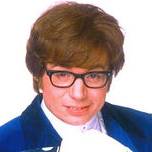 Intrigued is how I would describe myself the moment I learned that a “hip hop mass” would be held at St. Paul’s Chapel, an Episcopal church in the heart of Manhattan’s financial district. How can liturgical Protestantism and hip hop music coexist? What is the driving force behind such an ostensibly bizarre combination of ceremony and pop culture? These questions weren’t exactly answered, but I did have a great time.
Intrigued is how I would describe myself the moment I learned that a “hip hop mass” would be held at St. Paul’s Chapel, an Episcopal church in the heart of Manhattan’s financial district. How can liturgical Protestantism and hip hop music coexist? What is the driving force behind such an ostensibly bizarre combination of ceremony and pop culture? These questions weren’t exactly answered, but I did have a great time.
Knowing very little, I walked into the chapel with the presumption that I would be shoulder-to-shoulder with awkward Episcopalians suspicious of a “funked-out,” hip hop-infused mass. What I witnessed instead was a congregation of willing participants led by a backbeat-laden liturgical concert featuring a team of rappers, a band, and several backup dancers. “Amen” was replaced by “Word,” an appropriately adapted version of the 23rd Psalm was recited, and clergy members infused their words with hip hop lingo, such as “peeps” and “homies,” while rocking out in their vestments.
In fact, a standout element of the service ended up being the unabashed audience participation. There was no core demographic; everyone was there: young and old, black and white, from the devout to the just plain curious. With all of the clapping, pointing to the heavens, and moving to the music, there was no time left to sit. From my vantage point, I could see not a single soul unmoved. Admittedly, I also succumbed to the lure of the music, moving my feet and clapping in time to the beat.
Aside from the concert and its receptive audience, the most entertaining part of being there was watching the many unassuming tourists walk in off the street, drawn by the odd pairing of hip hop and Manhattan’s only remaining colonial church. It was clear they had no idea what was in store for them. Many entered and exited within the span of five minutes, but a few stayed, sat in the pews, and participated as though they’d meant to come.
Unfortunately, all good things must come to an end. Copies of the newly published “Hip Hop Prayer Book” were given away to congregants as they reluctantly left their pews. And, upon exiting the chapel, I overheard an elderly woman, most likely in her 80s, respond to the question, “What do you think of hip hop now?” “I like it now,” she said, “as long as it gets those kids in the church.” Perhaps she answered my question; come for the music, stay for the Lord.


